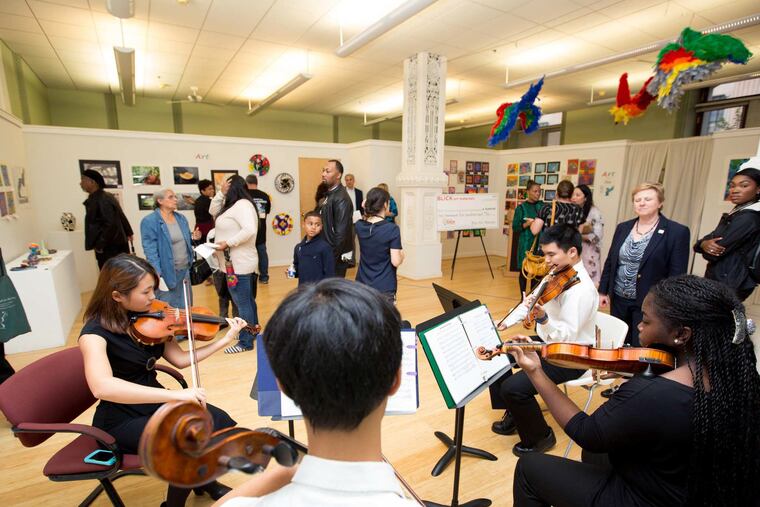Education should be the key issue in Philly’s 2019 elections | Opinion
Education is the one truly intersectional topic, in that when improved, it creates enormously positive ripple effects that span all aspects of people’s quality of life — especially in a place like Philadelphia.

If it’s one thing Philadelphia Mayor Jim Kenney is famous for, it’s that he’s all about “the kids.” “Doing it for our kids,” or some version of that, is a go-to rationale for many city leaders, including the mayor, particularly when he finds himself boxed in by policy critiques. It’s a major explainer to a city overwhelmed by the legacy of high tax burdens. More prominently, it’s his public reasoning for a controversial “soda tax” to fund universal pre-K and an ambitious half-billion-dollar Rebuild effort to refresh city libraries, parks, rec centers, and playgrounds.
But that narrative has yet to fix Philadelphia’s most tragic contradiction: It’s a historic and appealing metropolis with one of the highest concentrations of world-class academic institutions, yet with a sorely lacking public school system. Collectively, both elected officials and voters have failed to do anything about that. Each passing citywide, statewide, midterm, and presidential election becomes another missed opportunity to have a needed Education Election: a moment when the city’s education crisis is the defining issue that voters decide on, recognizing it as the core problem in Philly.
That void, however, presents the favorable moment we need as 2019 elections near. Winning candidates can revive education from its slumber and project it as both the current crisis and a future opportunity. These city leaders must paint an inspiring portrait of what this city could and should be. Education, beating out other issues, would be that paint brush.
This is a tricky political task, requiring a vision rather than an agenda. That means it can’t be stuck to or affiliated with any one interest group, either the teachers union or so-called “education reformers.” Something more constructive can be built from a transparent, innovative, and direction conversation between candidates and citizens, the type of exchange that creates an out-in-the-open movement.
The city needs one. Philly’s schools remain an extension of Philly’s destitution and poverty when they should be an escape or pathway from them, especially when so many of its students are economically disadvantaged. Philadelphia schools make up the majority of the top 50 Pennsylvania public schools with the highest dropout rates. Bullying remains an ongoing crisis lacking adequate response from the district, as education advocates formally complained in 2017. The overall district graduation rate of 67 percent is far below the official national average of 83 percent. Nearly a quarter of the city’s residents lack basic literacy skills, and as much as 20 percent of adults lack a high school diploma. A troubling 11 percent of city teens between the ages of 16 to 19 are not in school and not working.
Education is the one truly intersectional topic, in that when fixed, it creates enormously positive ripple effects that span across all aspects of people’s quality of life. It can help eviscerate poverty, increase jobs, reduce violent crime, and heal public health crises. And it can generate growth, parity, and sustainability while further positioning Philadelphia as the global magnet it can be.
A 2015 Pew survey found that more residents polled — 32 percent — named education as the city’s top issue than they did crime, jobs, and government corruption. Yet nearly quarter of the population is under 18 and cannot vote on this issue that most directly affects them. Education can also be a difficult sell to voters who aren’t parents or, if they are, seem consumed with other economic worries. Nationally, in the recent 2018 midterms, voters didn’t even pick education as a top issue in exit polling — and only 30 percent identified themselves as parents.
But a winning campaign never relies on polling alone to dictate strategy. The worthiest candidates will find a way to illustrate to voters that education is the one worry everyone can agree on. Everyone benefits from a city better educated — and everyone, including non-parents, benefits from not paying the social costs that pile up when we ignore it altogether.
Charles Ellison is host of “Reality Check,” a daily public affairs program on WURD radio, principal of B|E Strategy in Washington, and a contributing editor for The Philadelphia Citizen. @ellisonreport